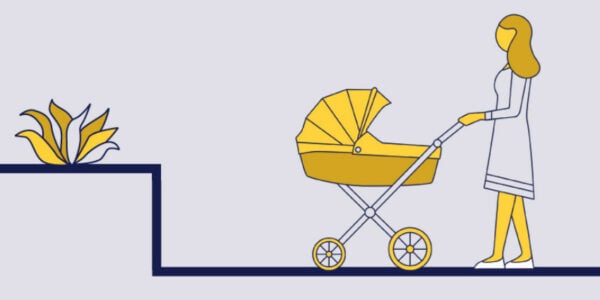This briefing paper examines the patterns around the increasing number of residential family assessment centres in England. It highlights what we know about practice and policies relating to these centres, outlining questions for stakeholders to consider in this understudied area.
Introduction
There are multiple types of residential provision that the family justice system may look to for families in need of support or assessment. This briefing focuses on one type: residential family assessment centres. The primary purpose of these centres is to provide an environment where professionals can assess parents’ ability to safeguard and care for their children, often a newborn baby. The outcomes of these assessments can influence the life-changing decisions within the family courts about whether families stay together and babies remain in the care of their parents.
Ofsted data (2025) highlights a significant rise in new registrations of residential family assessment centres in England in the past five years, with numbers doubling between 2019/2020 and 2024/25. Currently, there are 110 residential family assessment centres in England, the highest number in the last 12 years, many of which are clustered in London and the North West.
What residential family assessment centres deliver in terms of support to a new parent and their baby is variable (Munro et al. 2014). Families are typically in the centres for a fixed term (usually up to 12 weeks), during which time assessments of parenting capacity are made. They can provide positive opportunities for parents and babies who would have otherwise been separated, where families can receive tailored support and parenting guidance alongside assessment. However, they have been criticised for the high levels of scrutiny and stress that the experience can place on new parents, with 24-hour CCTV and monitoring commonplace.
Historically, the use of residential provision for new parents and their babies has, within the child protection system, been marked by stigma, institutional harm and neglect (Joint Committee on Human Rights 2022; McCormick et al. 2021). More recently, specialist residential provision, such as residential family assessment centres, has developed as an option for parents/mothers and babies, alongside foster care. However, the increasing prevalence of these centres raises longstanding questions regarding their effectiveness and the extent to which they ensure the safety, well-being and rights of families.
There is significant variability in the type of accommodation, scope of support that is offered, and legal orders underpinning this type of placement. Residential family assessment centres are often referred to interchangeably as residential family support, accommodation or mother-baby units/provision, meaning they are sometimes difficult to distinguish from other types of provision. In Department for Education regulations, they are referred to as ‘residential family centres’, but in order to avoid confusion with other types of provision, we refer to them throughout this briefing as Residential Family Assessment Centres, given their primary purpose is to ‘provide robust, fair and evidence-based assessments’ (DfE 2013).
Residential assessment and post-birth support for families experiencing vulnerability is an understudied area with limited research on parent experiences, outcomes and effectiveness of approaches. The voices of parents within the centres are rarely heard, and no data is collected at a national level about the characteristics of families that are referred for assessment (e.g. gender, disability, care experience, age or ethnicity) nor the outcomes for those families after assessment. This lack of information about who parents are, their own experiences, and how their intersecting needs (such as substance misuse, cultural background or care experience) may affect their experience significantly limits the accountability of the system, and raises a number of questions regarding the equity and rights of families in such a sensitive area of practice. There is also a lack of knowledge about the providers operating in this area, the drivers behind the increase in their numbers, and assessment practices within the centres.
This briefing paper examines the patterns around the increasing number of new registrations of residential family assessment centres across the country. It highlights what we know so far about the practices and policies regarding these centres, as well as outlining questions for stakeholders to consider.





